
Solwezi: The Gem of Zambia's North-Western Province
Solwezi, the vibrant capital of Zambia's North-Western Province, is a hidden gem waiting to be discovered. Known primarily for its mining industry, the city has much more to offer than meets the eye. Nestled in a lush, green landscape, Solwezi provides a unique blend of natural beauty and rich cultural heritage, making it an intriguing destination for travelers seeking an off-the-beaten-path adventure. One of Solwezi's most captivating attractions is the Mutanda Falls, a stunning waterfall situated just a short drive from the city center. These falls are not only a breathtaking sight but also a perfect spot for picnicking and relaxing in the serene environment. Nearby, visitors can explore the ancient rock paintings at the Chifubwa Stream, offering a glimpse into the region's prehistoric past. Solwezi is also a gateway to the Kifubwa National Monument, where you can witness ancient rock engravings that date back thousands of years. For those interested in local culture, visiting the bustling Solwezi Market is a must. Here, you can immerse yourself in the vibrant atmosphere, sample local cuisine, and purchase handmade crafts and souvenirs. Despite its remote location, Solwezi offers a range of accommodations, from budget-friendly lodges to more upscale options, ensuring a comfortable stay for all types of travelers. With its warm, welcoming community and a plethora of natural and cultural attractions, Solwezi is a destination that promises a memorable and enriching experience.
Local tips in Solwezi
- Visit Mutanda Falls early in the morning to avoid crowds and enjoy the serene atmosphere.
- Bring cash when visiting Solwezi Market, as many vendors do not accept credit cards.
- Hire a local guide to get the most out of your visit to the Chifubwa Stream rock paintings and Kifubwa National Monument.
- Check the weather forecast before planning outdoor activities, as the region can experience heavy rains, especially during the wet season from November to April.
- Stay hydrated and use sunscreen, as the sun can be quite intense, even during cooler months.
Solwezi: The Gem of Zambia's North-Western Province
Solwezi, the vibrant capital of Zambia's North-Western Province, is a hidden gem waiting to be discovered. Known primarily for its mining industry, the city has much more to offer than meets the eye. Nestled in a lush, green landscape, Solwezi provides a unique blend of natural beauty and rich cultural heritage, making it an intriguing destination for travelers seeking an off-the-beaten-path adventure. One of Solwezi's most captivating attractions is the Mutanda Falls, a stunning waterfall situated just a short drive from the city center. These falls are not only a breathtaking sight but also a perfect spot for picnicking and relaxing in the serene environment. Nearby, visitors can explore the ancient rock paintings at the Chifubwa Stream, offering a glimpse into the region's prehistoric past. Solwezi is also a gateway to the Kifubwa National Monument, where you can witness ancient rock engravings that date back thousands of years. For those interested in local culture, visiting the bustling Solwezi Market is a must. Here, you can immerse yourself in the vibrant atmosphere, sample local cuisine, and purchase handmade crafts and souvenirs. Despite its remote location, Solwezi offers a range of accommodations, from budget-friendly lodges to more upscale options, ensuring a comfortable stay for all types of travelers. With its warm, welcoming community and a plethora of natural and cultural attractions, Solwezi is a destination that promises a memorable and enriching experience.
When is the best time to go to Solwezi?
Iconic landmarks you can’t miss
Shoprite Solwezi
Discover the best of local and international groceries at Shoprite Solwezi, a must-visit supermarket in the heart of Solwezi, Zambia.
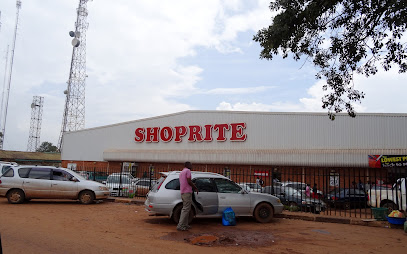
Kyawama Market
Discover the vibrant Kyawama Market in Solwezi, where local culture, fresh produce, and unique crafts create an unforgettable shopping experience.
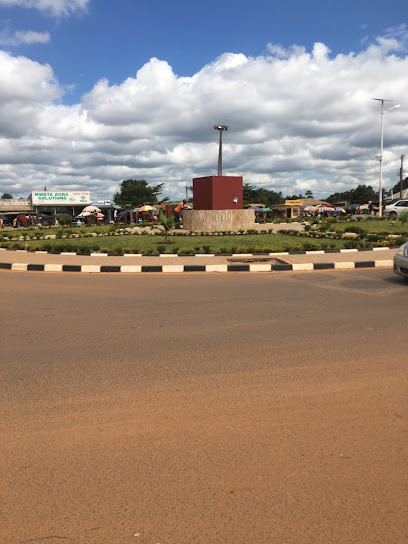
Royal Solwezi Hotel
Discover unparalleled comfort and exceptional service at Royal Solwezi Hotel, the ideal retreat for travelers in Solwezi, Zambia.

Floriana Lodge
Experience the charm of Zambian hospitality at Floriana Lodge in Solwezi, blending comfortable accommodations with exquisite dining options.
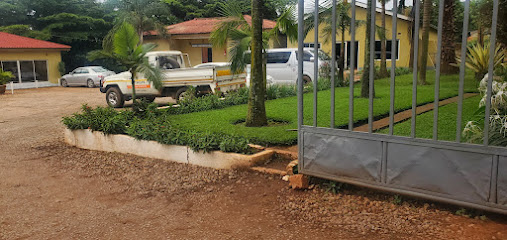
Kansanshi Hotel
Experience the perfect blend of comfort and Zambian hospitality at Kansanshi Hotel in Solwezi, a serene retreat for all travelers.

Crossroads Lodge Solwezi
Experience the serene beauty and warm hospitality of Crossroads Lodge in Solwezi, your perfect getaway in the heart of Zambia.
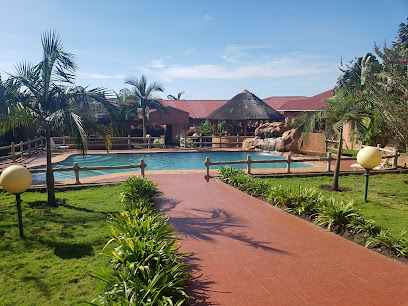
G Greens Pub and Grill Solwezi
Experience vibrant nightlife at G Greens Pub and Grill in Solwezi, where delicious food meets a lively atmosphere in the heart of Zambia.
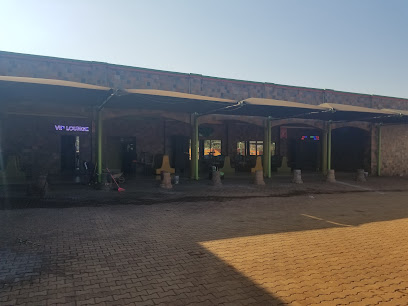
SOLWEZI LODGE
Experience comfort and local charm at Solwezi Lodge, your perfect retreat in the heart of Solwezi, Zambia.
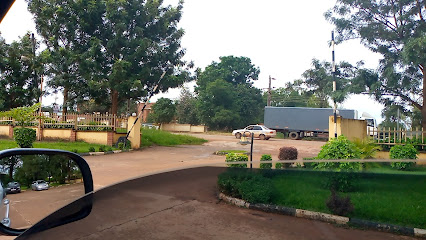
The Rooster Cafe
Experience the local culinary scene at The Rooster Cafe in Solwezi, featuring a delightful menu and warm hospitality that welcomes every traveler.
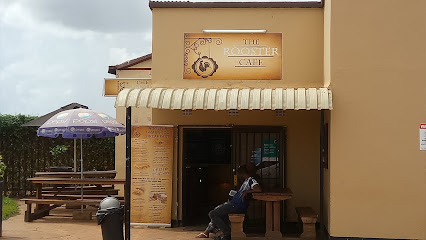
Feya Water Lodge
Experience tranquility and nature at Feya Water Lodge, your serene getaway in Solwezi, Zambia, surrounded by breathtaking landscapes and rich biodiversity.
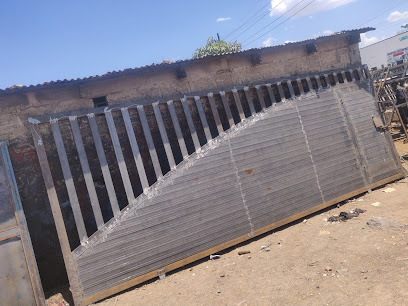
Chabanga Lodge
Immerse yourself in comfort and local culture at Chabanga Lodge, your serene retreat in the heart of Solwezi, Zambia.
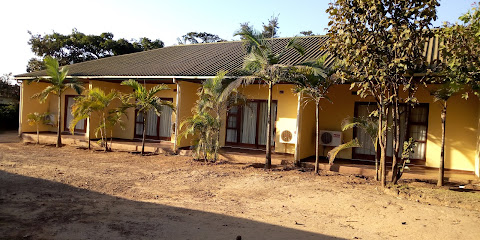
Solwezi Airport
Discover the adventure waiting at Solwezi Airport, your gateway to Zambia's breathtaking landscapes and vibrant culture.
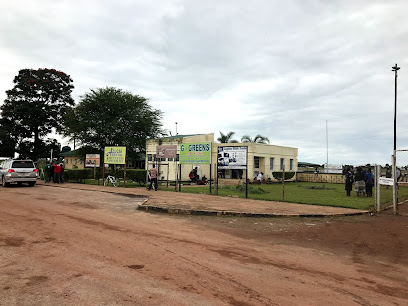
Hungry Lion City Mall
Experience the best fried chicken in Solwezi at Hungry Lion City Mall, where local flavors meet a vibrant dining atmosphere.
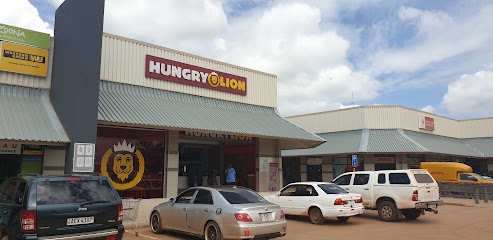
Country Lodge Solwezi
Experience the comfort and charm of Country Lodge Solwezi, your perfect base for exploring the vibrant culture and stunning landscapes of Zambia.
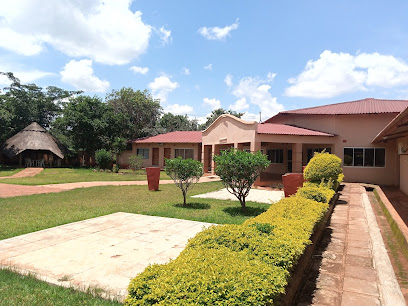
Aaso Hotel
Discover the vibrant culture of Solwezi while enjoying a comfortable stay at Aaso Hotel, your perfect home base in Zambia.
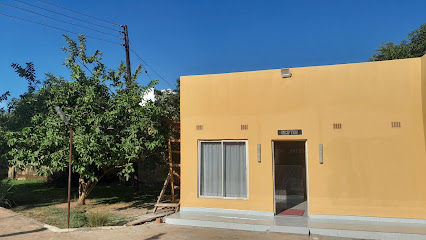
Unmissable attractions to see
Mutanda Falls
Explore the breathtaking Mutanda Falls, a hidden natural gem in Zambia, where cascading waters meet lush landscapes for an unforgettable adventure.
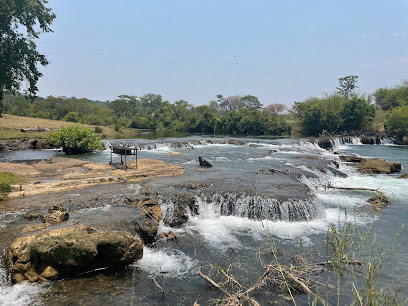
Kifubwa National Monument
Explore Kifubwa National Monument in Solwezi, where ancient rock art meets stunning natural beauty, revealing Zambia's rich archaeological heritage.
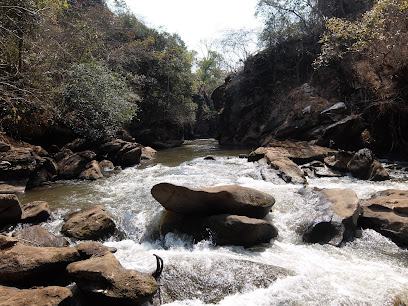
The Waterfront
Discover the beauty of The Waterfront in Solwezi, a peaceful park perfect for relaxation, picnics, and enjoying nature's tranquility.
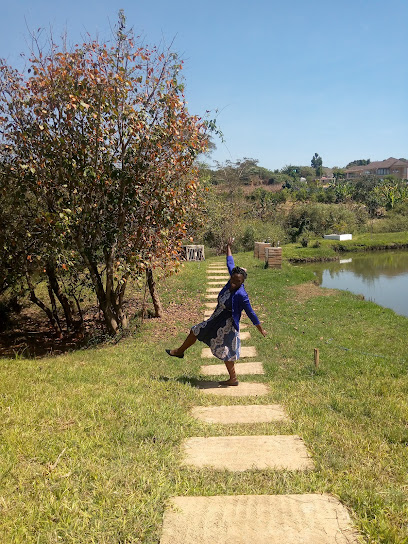
Havillah Gardens - Solwezi
Explore the serene beauty of Havillah Gardens in Solwezi, a botanical paradise showcasing Zambia's diverse flora amidst lush landscapes.

Fish ponds
Experience the tranquility of the Fish Ponds in Solwezi, a breathtaking retreat that harmonizes nature and serenity for every traveler.
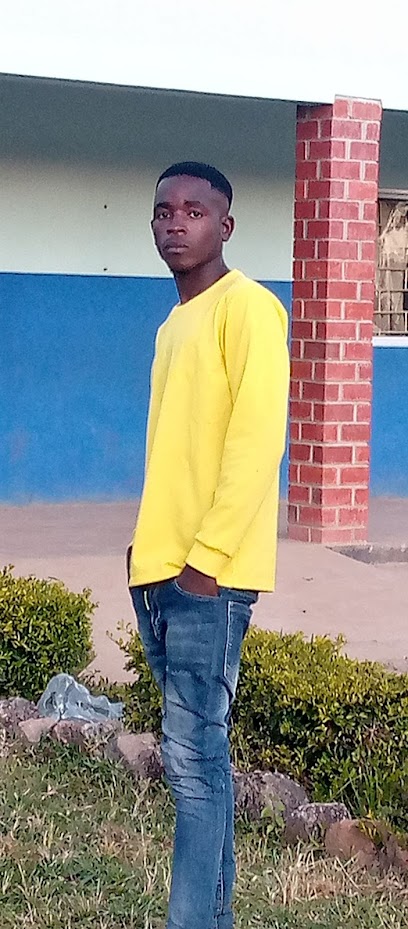
Kaf~citys River view
Discover the tranquil beauty of Kaf~citys River View in Solwezi, Zambia, a serene garden offering stunning river views and lush greenery.
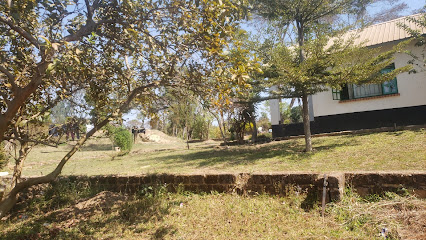
KIMALE VIEWPOINT HILL
Experience the breathtaking views of KIMALE VIEWPOINT HILL in Solwezi, Zambia, a hidden gem perfect for nature lovers and photography enthusiasts.
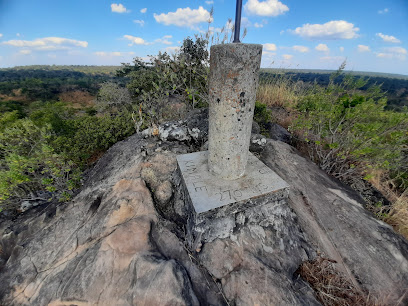
MULENGA CHM-11238
Discover the serene beauty of MULENGA CHM-11238 in Solwezi, a tranquil garden perfect for relaxation and nature exploration.
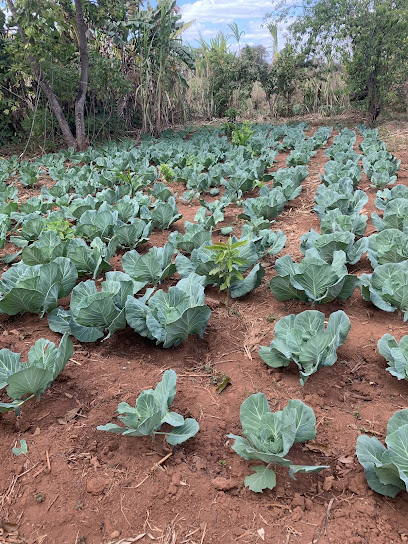
Solwezi Falls
Experience the stunning beauty of Solwezi Falls, a natural wonder in Zambia perfect for adventure seekers and nature lovers.

Copper solwezi
Experience the serene beauty and diverse wildlife of Copper Solwezi Park, a tranquil escape in Kansanshi, Zambia.

Chuma Leah
Explore the serene landscapes of Chuma Leah Park, a peaceful retreat in Solwezi, Zambia, perfect for nature walks, picnics, and family outings.

Huntley Falls
Experience the breathtaking beauty of Huntley Falls in Solwezi, a must-visit destination for nature lovers and adventure seekers in Zambia.

Essential places to dine
Floriana Lodge
Experience authentic Zambian cuisine at Floriana Lodge – your cozy retreat in Solwezi with exceptional service and local flavors.
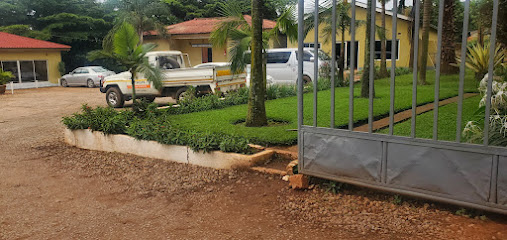
Shamel Restaurant and Bar
Discover the flavors of Zambia at Shamel Restaurant and Bar - where great food meets a welcoming atmosphere.
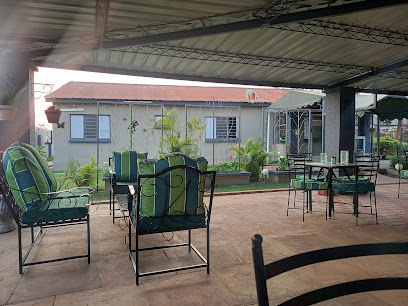
Buffalo Wings
Experience the vibrant flavors of Zambia at Buffalo Wings - where delicious grilled meals meet a lively atmosphere in Solwezi.
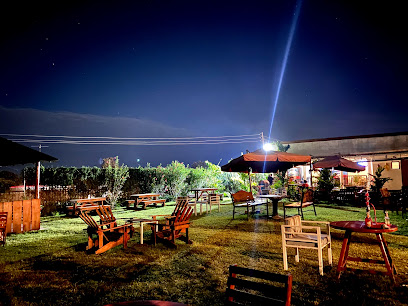
Georgies BAR & Grill
Experience exquisite local and international flavors at Georgies BAR & Grill in Zambia – where vibrant atmosphere meets culinary delight.
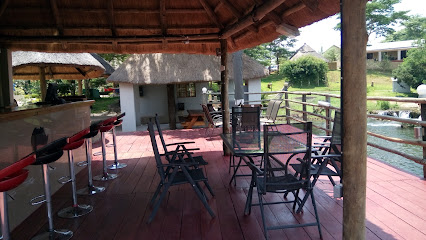
Food Junction
Experience the rich flavors of Zambia at Food Junction – a culinary haven offering diverse dishes in Solwezi.
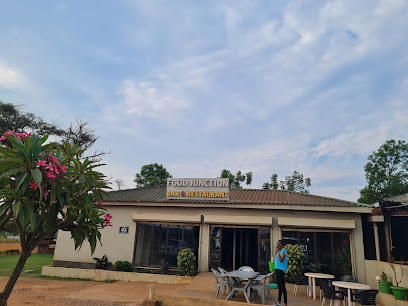
Hungry Lion City Mall
Discover the ultimate fast-food experience at Hungry Lion City Mall – where crispy fried chicken meets vibrant atmosphere in Solwezi.
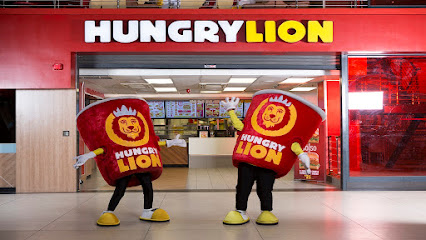
Debonairs Pizza
Discover the ultimate pizza experience at Debonairs Pizza Solwezi – where flavor meets convenience in every slice!
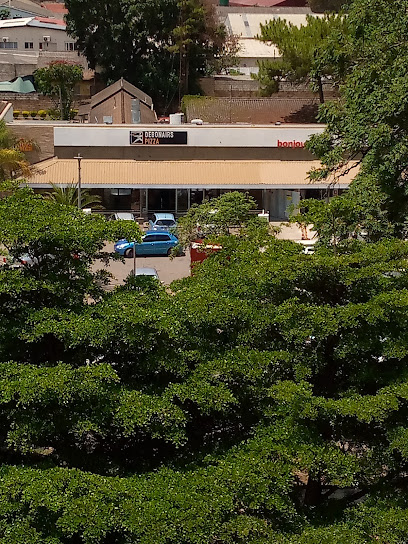
Koza Lodge and restaurant
Discover the flavors of Zambia at Koza Lodge and Restaurant in Solwezi - where local cuisine meets exceptional hospitality.
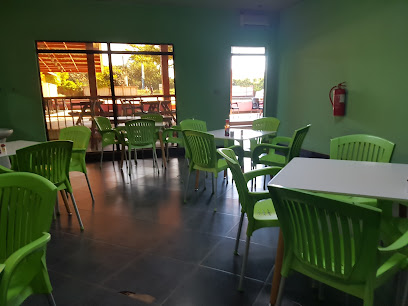
Kansanshi Mine Gate Lodge
Discover comfort and delectable dining at Kansanshi Mine Gate Lodge, your ideal retreat in Solwezi's vibrant heart.
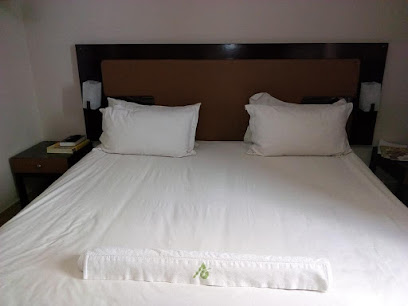
Baan Thai restaurant
Experience the vibrant flavors of Thailand at Baan Thai Restaurant in Kansanshi - where authentic cuisine meets warm hospitality.
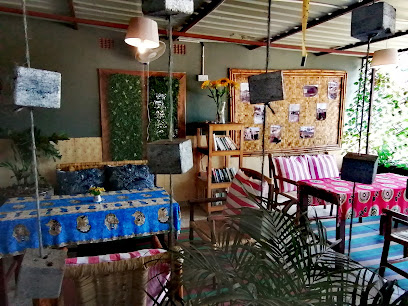
Kisu Lodge
Discover comfort and local flavors at Kisu Lodge in Solwezi – your perfect retreat after exploring Zambia's beauty.
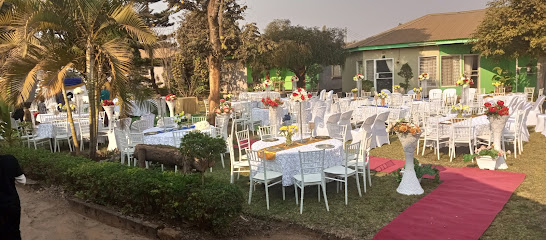
Kansanshi Club House
Experience delicious barbecue at Kansanshi Club House in Solwezi - where great flavors meet vibrant atmosphere.
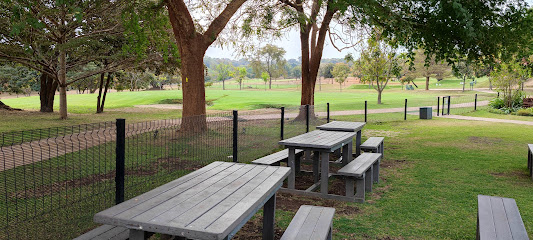
Leo's Bar and Restaurant Solwezi
Experience authentic Indian cuisine at Leo's Bar and Restaurant in Solwezi – where every dish tells a story.
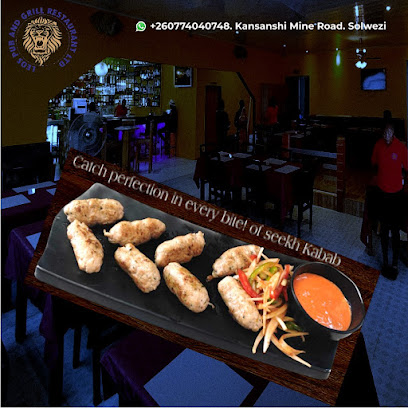
Leo's pub & grillSolwezi
Discover delicious grilled delights and vibrant nightlife at Leo's Pub & Grill in Solwezi - your ultimate dining destination!
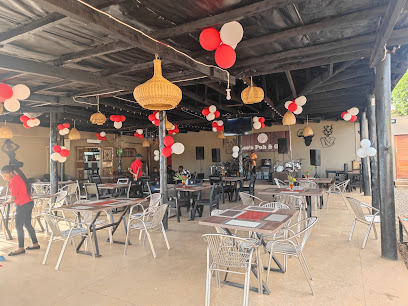
Bravo Cafe and Restaurant
Discover the vibrant flavors of Zambia at Bravo Cafe and Restaurant in Solwezi - where delicious food meets warm hospitality.
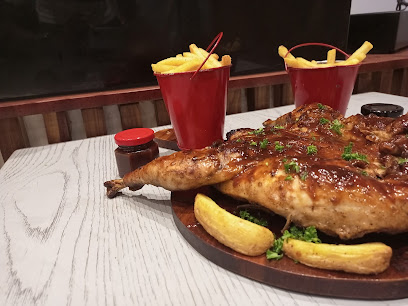
Markets, malls and hidden boutiques
Solwezi City Mall
Explore Solwezi City Mall: A vibrant shopping experience in Zambia with diverse shops and delicious dining options.
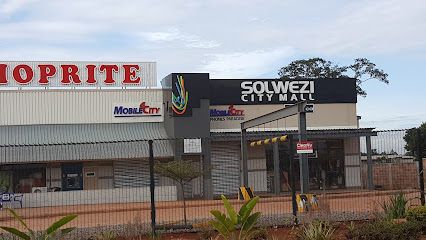
Kapiji Mall
Discover a vibrant shopping experience at Kapiji Mall in Solwezi, featuring diverse stores, dining options, and a lively atmosphere for all visitors.
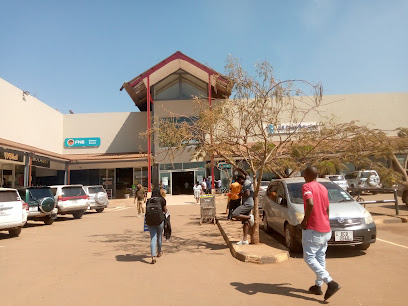
Shoprite Solwezi
Discover the vibrant shopping experience at Shoprite Solwezi, where local culture meets convenience in a delightful supermarket.
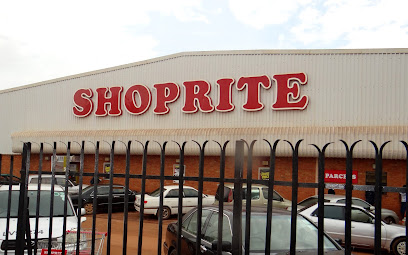
Shoprite City Mall
Discover the ultimate shopping experience at Shoprite City Mall in Solwezi, offering a wide range of products to meet all your needs.
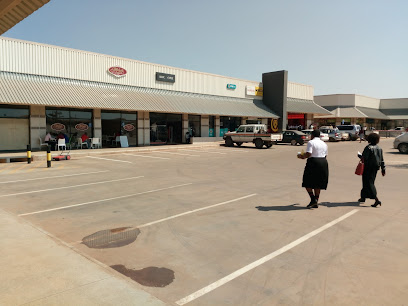
PicknPay Kapiji Mall
Discover the best grocery shopping experience at PicknPay Kapiji Mall in Solwezi, where fresh produce meets local flavors in a welcoming atmosphere.
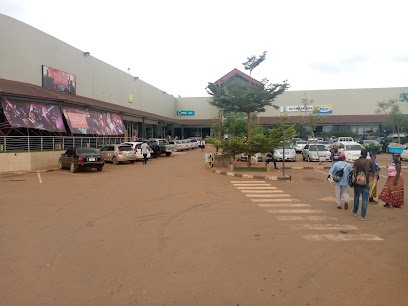
Choppies
Discover Choppies in Solwezi: your ultimate shopping destination for local and international brands amidst a vibrant atmosphere.
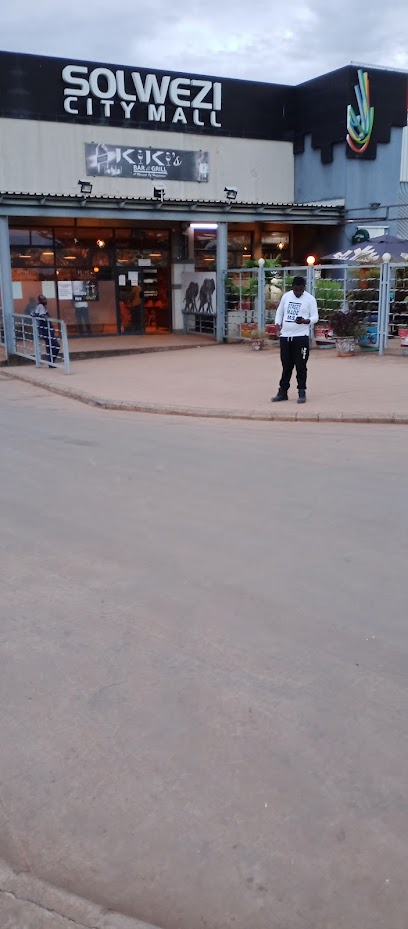
Solwezi Zambia
Explore Solwezi, Zambia - a vibrant town where culture meets commerce, offering local produce, friendly markets, and stunning landscapes.
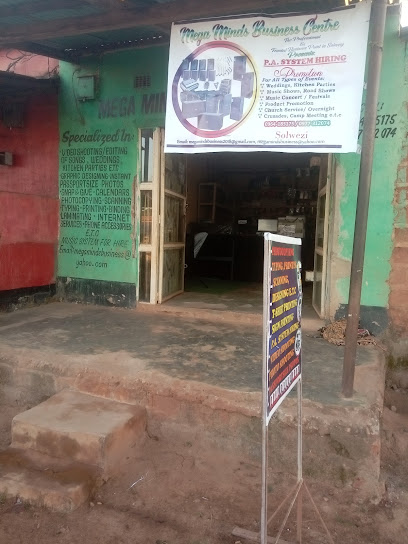
Solwezi, Zambia
Experience the vibrant culture, unique shopping, and warm hospitality of Solwezi, Zambia, where tradition meets modernity.
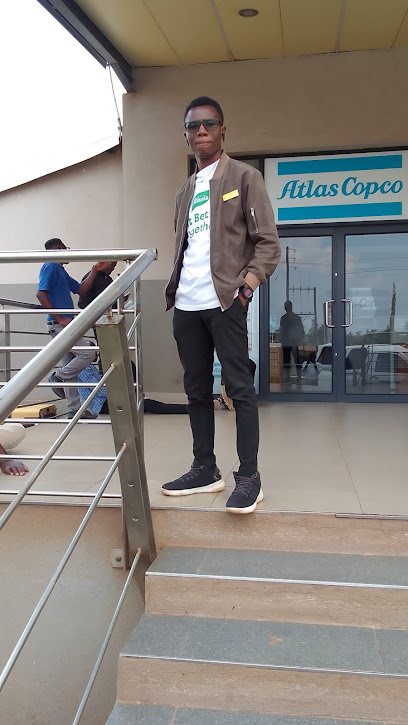
Studio 88
Discover trendy apparel and vibrant styles at Studio 88, your go-to clothing store in Solwezi for an authentic Zambian shopping experience.
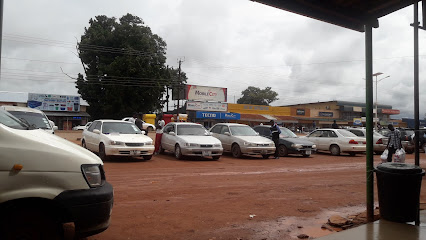
GMMBAS ENTERPRISES LTD
Discover unique fashion at GMMBAS ENTERPRISES LTD, the premier clothing store in Solwezi's lively Main Market, perfect for tourists seeking local styles.
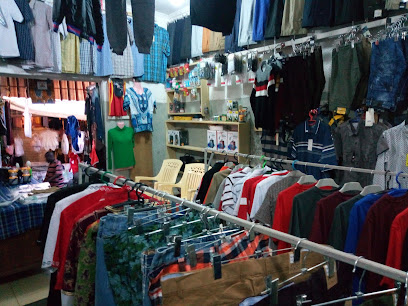
Kallos Thrift Hub Limited
Discover unique styles at Kallos Thrift Hub in Solwezi, where fashion meets sustainability for every class.
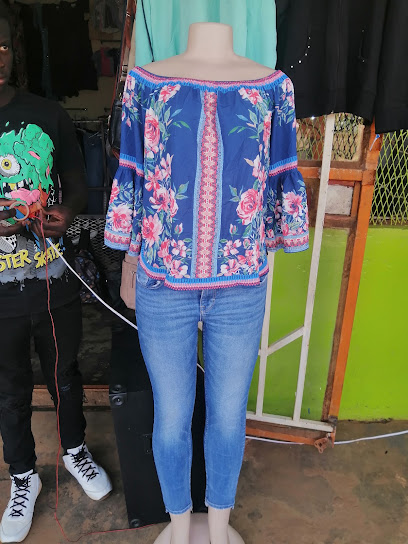
GoldPIne Foods Zambia Spice Shop In Lusaka Solwezi and Kitwe
Explore the vibrant flavors of Zambia at GoldPine Foods, the premier spice shop in Solwezi for authentic local ingredients.
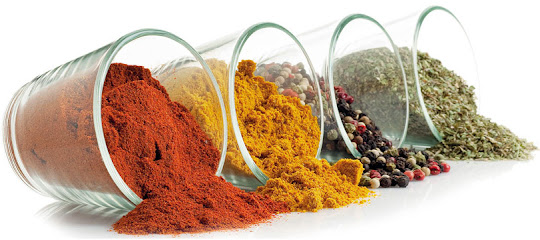
OK Furniture Solwezi
Explore quality and stylish furniture at OK Furniture Solwezi, a top destination for home décor enthusiasts in Zambia.
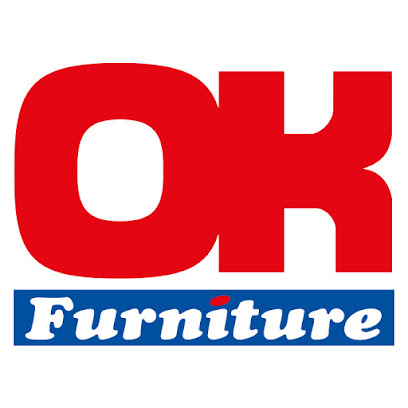
LEVISON
Discover unique home goods and authentic Zambian crafts at Levison, a must-visit store in Solwezi for every tourist.
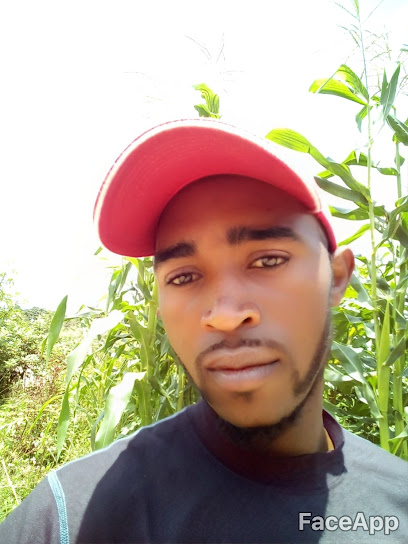
Entertainment center
Experience the vibrant entertainment center in Solwezi, offering shopping, local crafts, and a lively atmosphere perfect for tourists and locals alike.
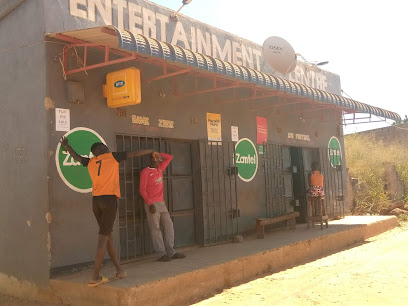
Essential bars & hidden hideouts
G Greens Pub and Grill Solwezi
Experience the vibrant nightlife and delicious cuisine at G Greens Pub and Grill in Solwezi, a must-visit bar for tourists seeking local culture.
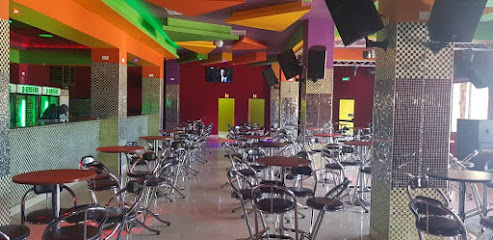
Buffalo Wings
Savor the best grilled delights at Buffalo Wings in Solwezi, where flavor meets a vibrant dining experience for every taste bud.
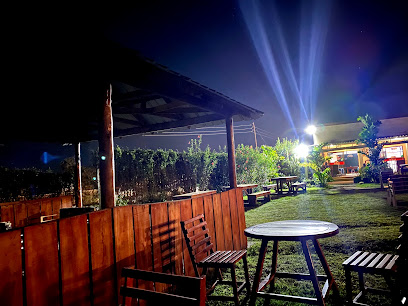
Spice Valley Bar & Restaurant
Experience the vibrant atmosphere and local flavors at Spice Valley Bar & Restaurant in Solwezi, the perfect spot for relaxation and social gatherings.
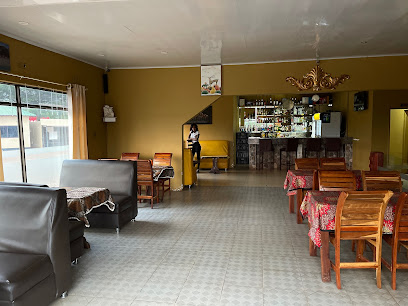
Friends Bar Events Solwezi
Discover the lively atmosphere at Friends Bar Events in Solwezi, where friendly faces and great drinks await to enhance your travel experience.
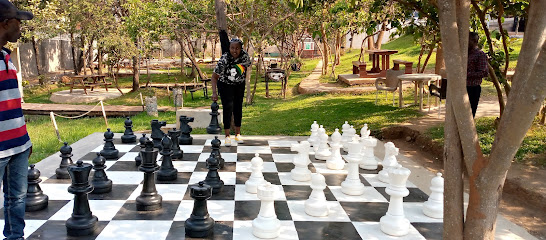
KiKIs Pub and Grill
Discover the flavors and vibrant atmosphere at KiKIs Pub and Grill, a top destination for food and fun in Solwezi.
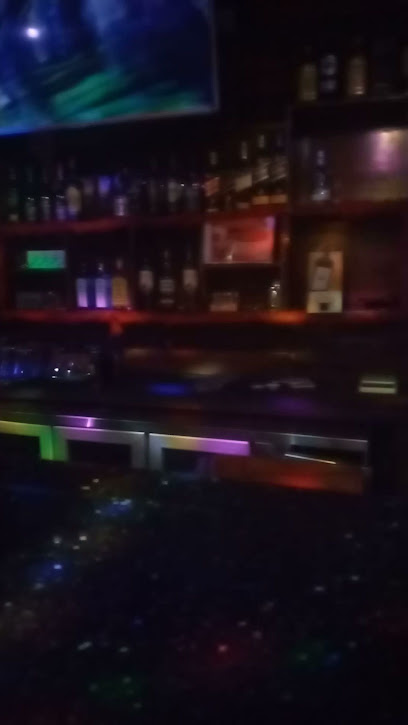
Leo's pub & grillSolwezi
Discover the vibrant flavors of Zambia at Leo's Pub & Grill in Solwezi, where great food meets a lively atmosphere for an unforgettable dining experience.
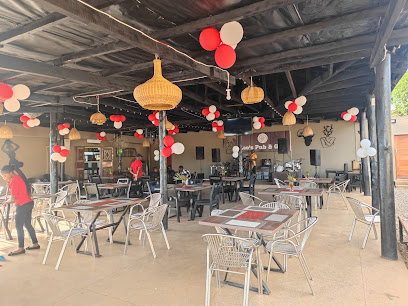
Vegas Hustlers Lounge
Discover the lively nightlife at Vegas Hustlers Lounge in Solwezi, where great drinks and a vibrant atmosphere await every visitor.
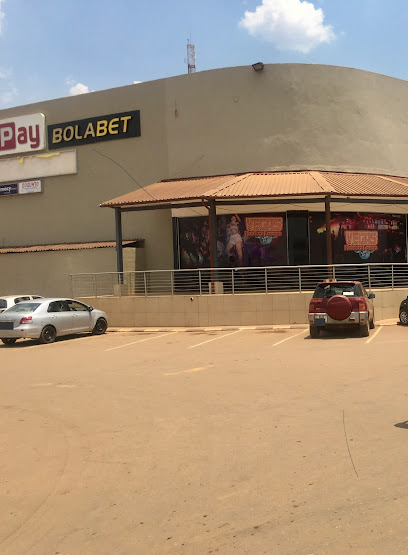
Pama Widows
Experience the vibrant social scene at Pama Widows, a cozy bar in Solwezi offering local drinks and a welcoming atmosphere.

ONE LOVE DOT COME BOTTLE STORE
Experience the lively ambiance and welcoming spirit of One Love Dot Come Bottle Store, a must-visit bar in Solwezi for tourists seeking local culture.

Goldfish Pub and Grill
Experience the vibrant atmosphere and local flavors at Goldfish Pub and Grill, a must-visit bar in Solwezi for a relaxing night out.

Weighbridge Pub & Grill
Experience the lively atmosphere and authentic flavors at Weighbridge Pub & Grill in Solwezi, a perfect blend of local hospitality and vibrant nightlife.
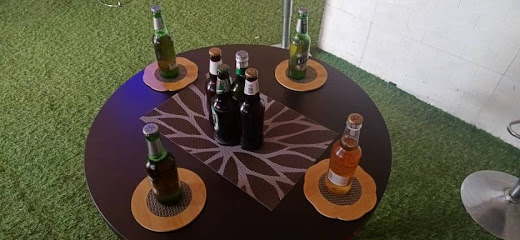
Code Zoza
Experience the vibrant nightlife of Solwezi at Code Zoza, a lively bar offering local flavors and a welcoming atmosphere.
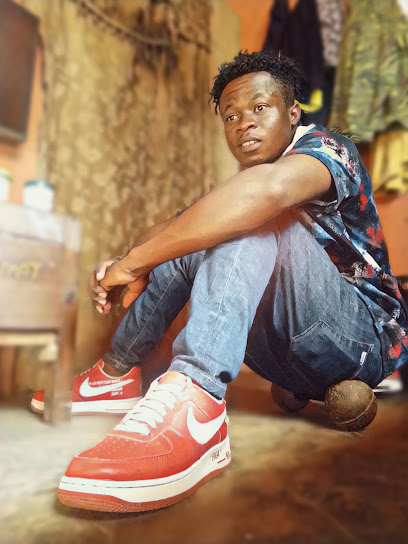
ZOZILIN ( Pub & Grill )
Discover the rich flavors and community spirit at ZOZILIN Pub & Grill in Solwezi, a must-visit for food enthusiasts and travelers alike.
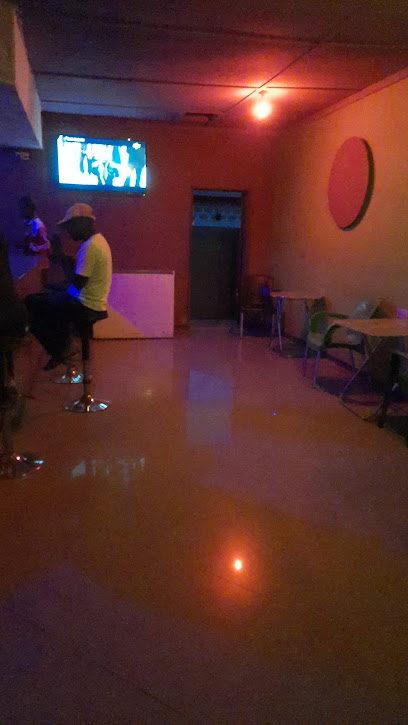
B&S Chill Pub
Experience the vibrant nightlife of Solwezi at B&S Chill Pub, where great drinks and friendly faces create unforgettable memories.

Local Phrases
-
- HelloShani
[sha-nee] - GoodbyeSulangeni
[su-lan-ge-nee] - YesEe
[ee] - NoAwe
[a-we] - Please/You're welcomeNaula
[na-u-la] - Thank youTwalumba
[twa-lum-ba] - Excuse me/SorryPepani
[pe-pa-nee] - How are you?Uli shani?
[u-li sha-nee] - Fine. And you?Nshali bwino. Iwe?
[nsha-li bwee-no ee-we] - Do you speak English?Uka panga mutu wa English?
[oo-ka pan-ga moo-too wa English] - I don't understandNshakwatako
[nsha-kwa-ta-ko]
- HelloShani
-
- I'd like to see the menu, pleaseNakufuna kubona menu, pakuti
[na-ku-fu-na ku-bo-na me-nu pa-koo-tee] - I don't eat meatNshisala inswa
[nshi-sa-la in-swa] - Cheers!Ndele!
[nde-le] - I would like to pay, pleaseNakufuna kulipa, pakuti
[na-ku-fu-na ku-li-pa pa-koo-tee]
- I'd like to see the menu, pleaseNakufuna kubona menu, pakuti
-
- Help!Mulonga!
[mu-lon-ga] - Go away!Ponyoka!
[pon-yo-ka] - Call the Police!Pangani Police!
[pan-ga-nee po-lee-ce] - Call a doctor!Pangani dokota!
[pan-ga-nee do-ko-ta] - I'm lostNshibika
[nshi-bi-ka] - I'm illNshilikita
[nshi-li-ki-ta]
- Help!Mulonga!
-
- I'd like to buy...Nakufuna kubeli...
[na-ku-fu-na ku-be-li] - I'm just lookingNkabona fye
[nka-bo-na fye] - How much is it?Ni ndalama shani?
[nee n-da-la-ma sha-nee] - That's too expensiveIyo ni kawalala
[ee-yo nee ka-wa-la-la] - Can you lower the price?Uka landa chikwati?
[oo-ka lan-da chi-kwa-tee]
- I'd like to buy...Nakufuna kubeli...
-
- What time is it?Ilelo lyobe tayi?
[i-le-lo lyo-be ta-yee] - It's one o'clockNdi shanu
[n-di sha-nu] - Half past (10)Kashi kumi na bbili
[ka-shi ku-mi na bbi-li] - MorningMwasuma
[mwa-su-ma] - AfternoonMpepo
[mpe-po] - EveningAkasuba
[a-ka-su-ba] - YesterdayUleisa
[u-lei-sa] - TodayLero
[le-ro] - TomorrowNkwale
[n-kwa-le] - 1Shanu
[sha-nu] - 2Bbili
[bbi-li] - 3Tatu
[ta-tu] - 4Ina
[i-na] - 5Itanu
[i-ta-nu] - 6Shanu na shanu
[sha-nu na sha-nu] - 7Saba
[sa-ba] - 8Nanu
[na-nu] - 9Somba
[som-ba] - 10Kumi
[ku-mi]
- What time is it?Ilelo lyobe tayi?
-
- Where's a/the...?Nakwata a/the...?
[na-kwa-ta a/the] - What's the address?Ndi adilesi yati?
[n-di a-di-le-si ya-ti] - Can you show me (on the map)?Uka nkonka ine (pa mapu)?
[oo-ka n-kon-ka i-ne pa ma-pu] - When's the next (bus)?Bus yabo iyi ndi lini?
[bus ya-bo i-yi n-di li-ni] - A ticket (to ....)Tikiti (ku ....)
[ti-ki-ti ku]
- Where's a/the...?Nakwata a/the...?
History of Solwezi
-
The area around Solwezi has been inhabited for thousands of years, with evidence of early human activity traced back to various Stone Age archaeological sites. The indigenous Kaonde people are the primary ethnic group in the region, known for their rich oral traditions and cultural heritage.
-
During the late 19th and early 20th centuries, the British colonial administration began to explore the mineral wealth of the region. The discovery of copper deposits in the 1920s led to the establishment of mining operations, which significantly transformed Solwezi into a mining town. The Kansanshi Mine, one of the oldest and largest copper mines in Africa, was a key development during this period.
-
Following Zambia's independence in 1964, Solwezi continued to grow as a pivotal mining hub. The Zambian government nationalized the mining industry in the 1970s, which brought both opportunities and challenges. The town's infrastructure and economy expanded, with investments in education, healthcare, and transportation.
-
In the early 2000s, Solwezi experienced a significant economic boom due to renewed interest and investment in the mining sector, particularly copper and gold. The opening of new mines and the expansion of existing ones attracted a diverse population, leading to rapid urbanization and development. Today, Solwezi stands as a bustling center of commerce and industry in Zambia's North-Western Province.
-
Solwezi is renowned for its vibrant cultural festivals, such as the Likumbi Lya Mize, a traditional ceremony of the Luvale people, which showcases traditional dances, music, and rituals. The Kaonde people also celebrate the Chiwila ceremony, which marks the harvest season and pays homage to ancestors. These events are vital in preserving and promoting the region's rich cultural heritage.
-
The surrounding area of Solwezi boasts stunning natural attractions, including the Mutanda Falls and the West Lunga National Park. These sites offer opportunities for ecotourism, wildlife viewing, and adventure activities. The lush landscapes and diverse ecosystems make Solwezi a hidden gem for nature enthusiasts.
-
Solwezi has made significant strides in educational and social development over the years. Numerous schools, vocational training centers, and Solwezi Technical School provide education and skill development to the local population. Community initiatives and NGOs play a crucial role in addressing social issues and empowering residents.
Solwezi Essentials
-
Solwezi is located in the North-Western Province of Zambia. The nearest international airport is Kenneth Kaunda International Airport in Lusaka, about 639 kilometers away. From Lusaka, you can take a domestic flight to Solwezi Airport. Alternatively, you can travel by road, which takes approximately 8 to 10 hours by bus or car. Buses and taxis are available for hire in Lusaka for the journey to Solwezi.
-
Solwezi has a variety of transport options. Taxis are the most common and convenient mode of transport within the town. Public buses and minibuses (commonly referred to as 'matatus') operate within the town and to nearby areas. Car rentals are available for those who wish to explore at their own pace. Bicycles and motorbikes are also popular for short distances.
-
The official currency in Zambia is the Zambian Kwacha (ZMW). Credit cards are accepted in major hotels, restaurants, and some shops, but it is advisable to carry cash, especially in smaller establishments and markets. ATMs are available in Solwezi, but it is wise to withdraw sufficient cash before traveling to more remote areas.
-
Solwezi is generally safe for tourists, but like any destination, standard precautions should be taken. Avoid walking alone at night in unfamiliar areas and keep an eye on your belongings in crowded places. Some areas, such as informal settlements, may have higher crime rates, though tourists are not commonly targeted. Always stay vigilant and aware of your surroundings.
-
In case of emergency, dial 991 for police assistance, 993 for medical emergencies, and 995 for fire services. Solwezi General Hospital is the main medical facility in the area. It is recommended to have travel insurance that covers medical emergencies. Pharmacies are available in the town for over-the-counter medications.
-
Fashion: Do dress modestly, especially in rural areas. Avoid wearing revealing clothing. Religion: Do respect local customs and traditions, and be aware that Zambia is predominantly Christian. Public Transport: Do be respectful and polite. Don't argue with drivers or fellow passengers. Greetings: Do greet people with a handshake and a smile. Using both hands to shake hands is a sign of respect. Eating & Drinking: Do try local foods and accept hospitality graciously. Don't refuse food or drink offerings, as it can be considered impolite.
-
To experience Solwezi like a local, visit the local markets such as Solwezi City Market where you can buy fresh produce and local crafts. Engage with locals, who are often friendly and willing to share stories about their culture and history. Don't miss visiting the Kansanshi Mine, one of the largest copper mines in Africa, and the beautiful Mutanda Falls, which offers a serene and picturesque setting.
Trending Landmark in Solwezi
Nearby Cities to Solwezi
-
Things To Do in Kitwe
-
Things To Do in Ndola
-
Things To Do in Kabwe
-
Things To Do in Lusaka
-
Things To Do in Kariba
-
Things To Do in Kasama
-
Things To Do in Livingstone
-
Things To Do in Katima Mulilo
-
Things To Do in Kasane
-
Things To Do in Victoria Falls
-
Things To Do in Hwange
-
Things To Do in Chipata
-
Things To Do in Chinhoyi
-
Things To Do in Harare
-
Things To Do in Lilongwe




